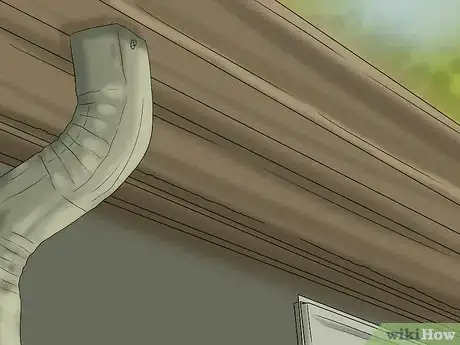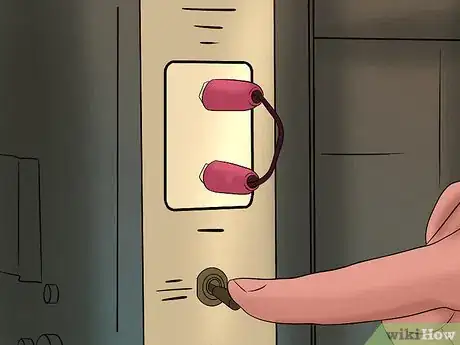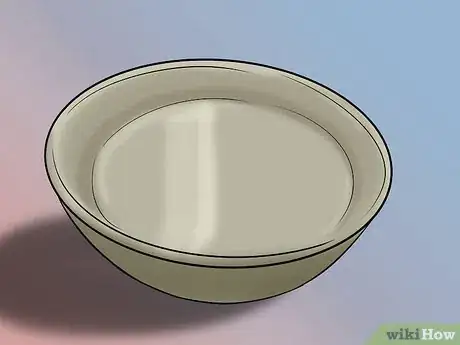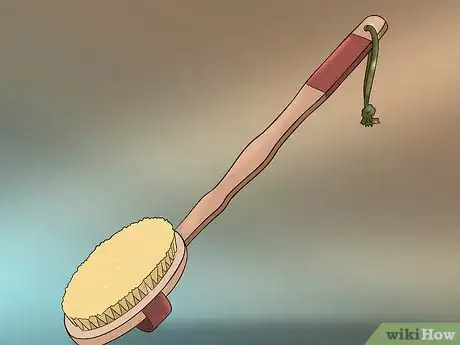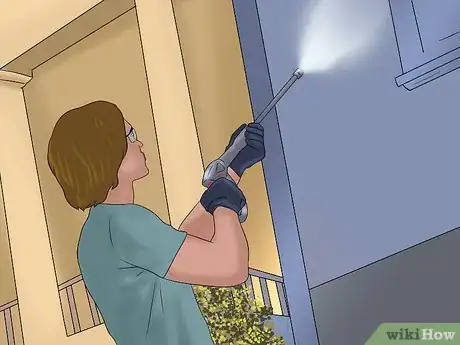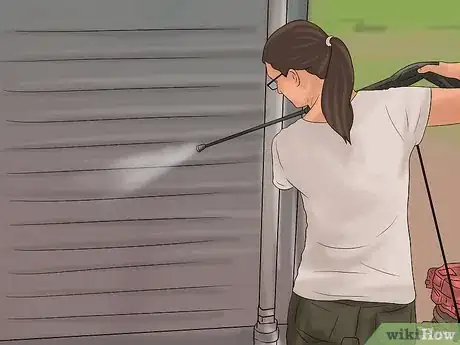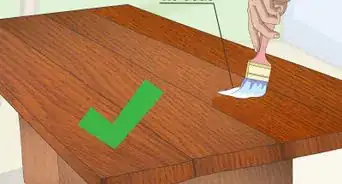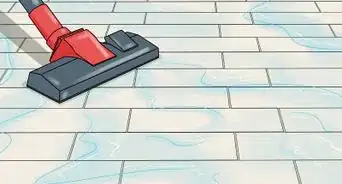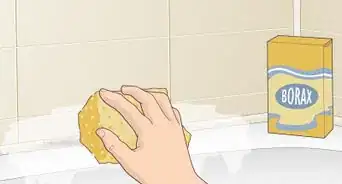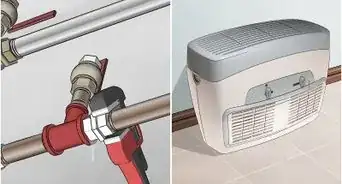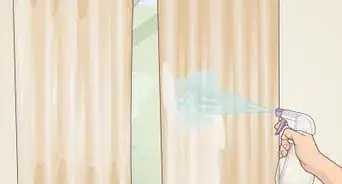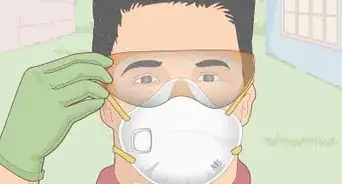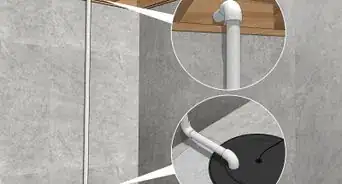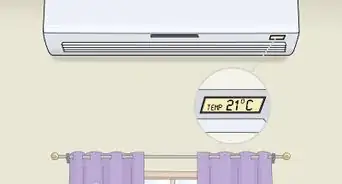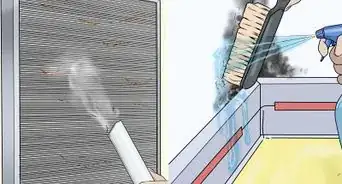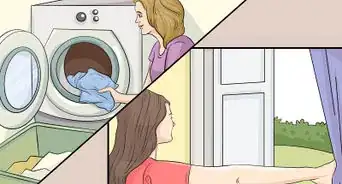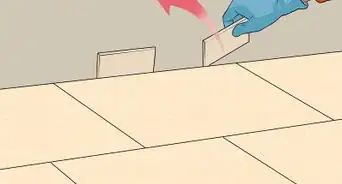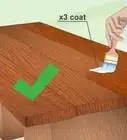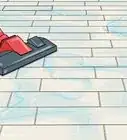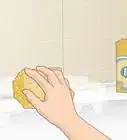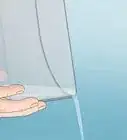This article was co-authored by Mike Kapur. Mike Kapur is a home inspector and the owner of Sonic Home Inspections, a home inspection company in Westchester, New York. With over 15 years of experience in pre-inspecting properties, Mike specializes in mold, radon, asbestos, lead, water, and air quality testing as well as hazardous materials, pest, infrared, and general home inspections. Prior to founding Sonic Home Inspections, Mike worked pre-inspecting apartments. Mike holds a BS in Accounting from Queens College and is a Certified Mold Assessor in the state of New York.
This article has been viewed 35,818 times.
Dark green and brown stains on your vinyl siding can be very unattractive. These stains are primarily caused by mold and mildew. Here’s a simple step-by-step guide on how you can get rid of those ugly marks and keep them from coming back again.
Steps
-
1Find the root cause of mold and mildew buildup.[1] Malfunctioning gutters, running water problems, and malfunctioning or misplaced sprinklers can all promote the growth and spread of mold and mildew. Address these issues to minimize the likelihood of having to deal with them again after you’ve cleaned your siding.
-
2Turn off mains power (if necessary) and cover outlets and lamps.[2] Before you begin cleaning, see to it that electric units on and near the walls you are about to clean are turned off or unplugged. Cover outlets, sockets, and lighting to prevent electrocution and electrical malfunction.Advertisement
-
3Choose the best cleaning solution. You can try a number of proven DIY and commercial cleaning solutions on your siding. A popular homemade option is to mix three (3) parts distilled white vinegar with seven (7) parts water in a bucket. If you prefer a commercial product, mix one (1) part bleach with four (4) parts water.
-
4Scrub.[3] Get a long-handled soft-bristle brush and dip it into the cleaning solution. Gently scrub any visible stain and mildew spots, working from top to bottom.
-
5Pressure-wash with cleaning solution.[4] Pour the cleaning solution into a power washer. If you are worried about damaging the vinyl, you may use a lower-pressure pump sprayer. Begin by spraying a 5-foot wide section of the siding, from the ground to the top. Remember not to angle the sprayer upward to keep the solution from seeping under the siding layers. Instead, aim the sprayer in such a way that the solution is sprayed from above. Using a ladder may help you achieve a more even application.
-
6Spray with clean water. Pour whatever solution remains in the sprayer back in the bucket. Rinse the sprayer and refill it with clean water. Rinse the solution off of the vinyl, starting from the top so the water will run downward.
-
7Repeat. Do steps 4 to 6 on the next 5-foot portion of your siding. Continue doing this until you have cleaned the entire wall.
Expert Q&A
-
QuestionHow do you get rid of mildew on vinyl siding?
 Mike KapurMike Kapur is a home inspector and the owner of Sonic Home Inspections, a home inspection company in Westchester, New York. With over 15 years of experience in pre-inspecting properties, Mike specializes in mold, radon, asbestos, lead, water, and air quality testing as well as hazardous materials, pest, infrared, and general home inspections. Prior to founding Sonic Home Inspections, Mike worked pre-inspecting apartments. Mike holds a BS in Accounting from Queens College and is a Certified Mold Assessor in the state of New York.
Mike KapurMike Kapur is a home inspector and the owner of Sonic Home Inspections, a home inspection company in Westchester, New York. With over 15 years of experience in pre-inspecting properties, Mike specializes in mold, radon, asbestos, lead, water, and air quality testing as well as hazardous materials, pest, infrared, and general home inspections. Prior to founding Sonic Home Inspections, Mike worked pre-inspecting apartments. Mike holds a BS in Accounting from Queens College and is a Certified Mold Assessor in the state of New York.
Certified Mold Assessor & Home Inspector, Sonic Home Inspections Powerwashing the area with detergent and water should do the trick.
Powerwashing the area with detergent and water should do the trick. -
QuestionIs green mold on vinyl siding harmful?
 Debra BishCommunity AnswerNo, it is only unsightly. It's best to clean it off with a pressure washer and the appropriate cleaning solution. If you don't have that option, hot sudsy ammonia water or bleach water and a scrub brush will adequately do the job. Test in an inconspicuous place for color-fastness first.
Debra BishCommunity AnswerNo, it is only unsightly. It's best to clean it off with a pressure washer and the appropriate cleaning solution. If you don't have that option, hot sudsy ammonia water or bleach water and a scrub brush will adequately do the job. Test in an inconspicuous place for color-fastness first.
References
- ↑ https://www.epa.gov/mold/mold-course-chapter-2#Chapter2Lesson1
- ↑ https://www.fema.gov/pdf/rebuild/recover/fema_mold_brochure_english.pdf
- ↑ https://www.epa.gov/sites/production/files/2016-10/documents/moldguide12.pdf
- ↑ Mike Kapur. Certified Mold Assessor & Home Inspector, Sonic Home Inspections. Expert Interview. 19 August 2020.
